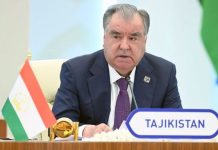April 24th, 2025
The Centre for Afghanistan, Middle East & Africa (CAMEA) at the Institute of Strategic Studies Islamabad (ISSI) organized a Round-Table discussion on the “Governance of Refugees in Pakistan: An Appraisal”, co-hosted by The BEYOND Project, Faculty of Law, University of Oslo, Norway.
Introductory remarks were given by Ambassador Sohail Mahmood, Director General, ISSI; Ms. Amina Khan, Director CAMEA moderated the session. The discussion was attended by policy makers, academics and practitioners.
In his remarks, Ambassador Sohail Mahmood underscored Pakistan’s more than four-decades-long commitment to hosting Afghan refugees, despite not being a signatory to the 1951 Refugee Convention. He noted that, historically, Pakistan had the distinction of handling the largest refugee case-load for the longest time. He highlighted that Afghan refugees in Pakistan faced no barriers to education, healthcare, or business, with the country receiving limited international support and encountering challenges. Ambassador Sohail Mahmood also acknowledged the important role of civil society and NGOs, and called on the international community to recognise the contributions and challenges of host nations, as well as Pakistan’s consistent and principled stance.
During the discussion, participants analysed Pakistan’s historical approach to the legal aspects of the refugees issue and in particular the country’s sustained generosity for over four decades in response to the continued flow of Afghan refugees. While the initial phase was marked by international support and solidarity, participants also reflected on the evolving challenges since then, including limited financial resources and reduced international support. The discussion also touched on the complex regional environment, humanitarian considerations, strengthening legal frameworks, broad-based consultations, and the effects of measures for refugees return. The importance of recognizing constraints and sensitivities of the host countries, understanding and supportive attitude of the international community and relevant international institutions, and forthcoming dispositions of countries of refugees’ origin was also emphasized.

















